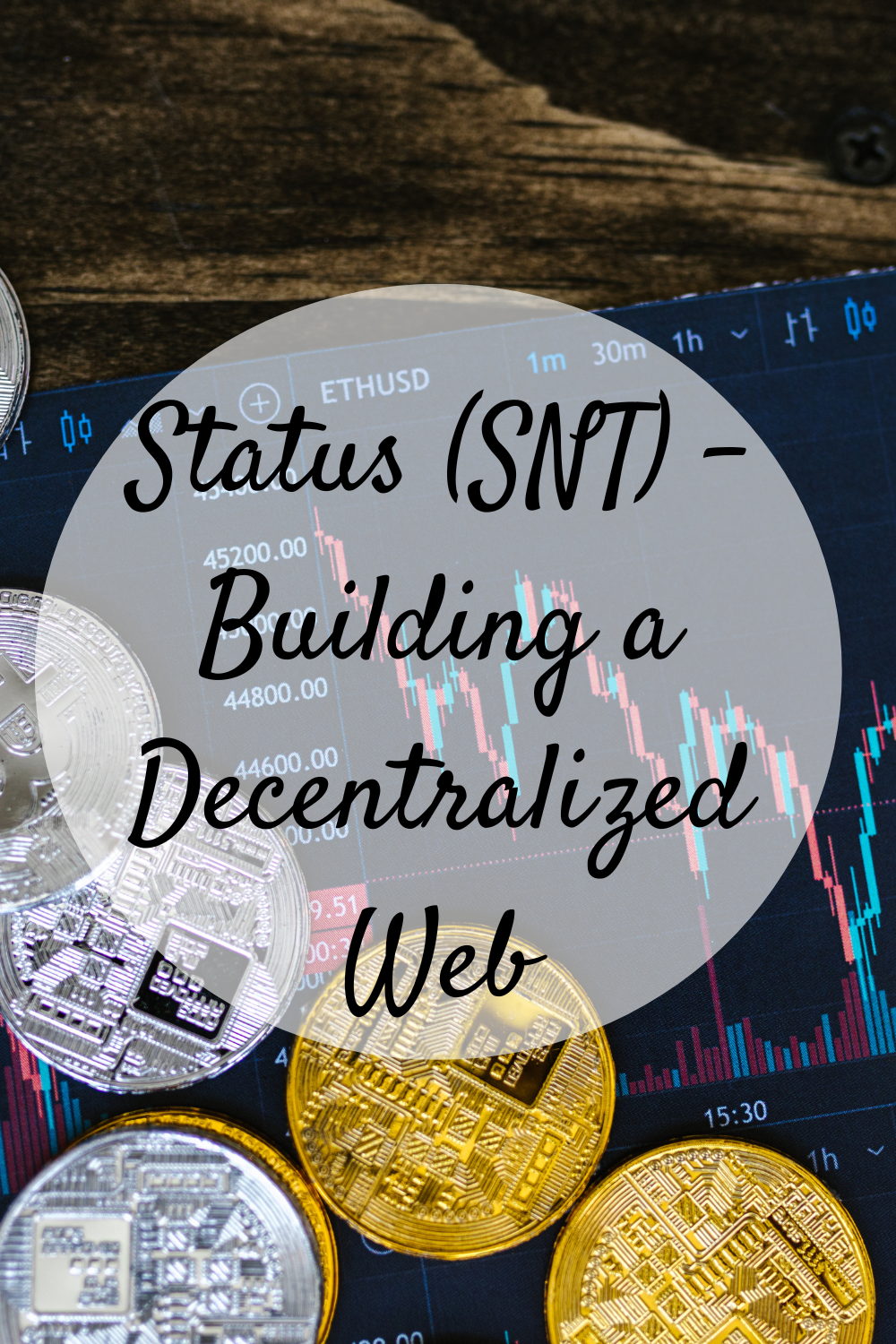
Status (SNT) represents a revolutionary blockchain-based communication platform, envisioning the dawn of a decentralized web. This comprehensive exploration embarks on a journey to unravel the multifaceted realm of Status, delving into its historical genesis, intricate functionalities, and the pivotal position it occupies in the intricate landscape of forging a decentralized internet. With a profound commitment to fostering the ideals of blockchain and decentralization, Status has emerged as an innovative solution designed to disrupt the conventional paradigms of online communication and financial transactions. Through an in-depth examination, we aim to provide a comprehensive understanding of Status, shedding light on its origins, core features, and the imperative role it assumes in shaping the decentralized web, promising to exert a substantial impact on the digital sphere. Additionally, if you want to know more about investments and firms, you may visit and explore Trade ReoPro site.
Understanding Status (SNT)
What is Status (SNT)?
Status (SNT) is an Ethereum-based open-source messaging platform that combines the functionality of a chat app, crypto wallet, and decentralized application (DApp) browser. Founded in 2017 by Jarrad Hope and Carl Bennetts, it has since grown into a robust ecosystem for secure, private, and censorship-resistant communication.
Key Features of Status
Chat and Messaging Functionalities
Status provides users with end-to-end encrypted messaging capabilities, allowing them to communicate securely while maintaining their privacy. It offers features like group chats, stickers, and multimedia sharing.
Crypto Wallet Integration
Users can manage their cryptocurrencies directly within the Status app, facilitating seamless transactions and interaction with the Ethereum network. This integration brings blockchain technology closer to everyday users.
Decentralized Applications (DApps) Support
Status serves as a gateway to the world of DApps, enabling users to explore and interact with a wide range of decentralized applications. This promotes the adoption of decentralized technologies beyond cryptocurrency.
The Need for a Decentralized Web
Centralization vs. Decentralization
The traditional web is characterized by centralized services controlled by a few powerful entities, which poses risks such as data breaches, censorship, and surveillance. Decentralization offers a solution by distributing control and enhancing security.
Status (SNT) as a Solution
Role in Decentralizing Web Services
Status empowers users to access decentralized services, reducing reliance on centralized authorities. Users can access DApps for various purposes, from finance to social networking, without intermediaries.
Ensuring User Privacy and Data Security
The end-to-end encryption used in Status ensures that user messages and transactions are secure and private. Users have full control over their data, enhancing their online privacy.
Building Blocks of Status (SNT)
Whisper Protocol
Explanation of Whisper and Its Significance
Whisper is a decentralized messaging protocol that allows for secure, anonymous communication over the Ethereum network. Status uses Whisper to provide private messaging, ensuring user data remains confidential.
How Status Utilizes Whisper
Status implements Whisper to create secure chat rooms and facilitate private communication. This technology ensures that messages are relayed securely without compromising user privacy.
Ethereum Integration
Smart Contracts and Their Role in Status
Smart contracts are self-executing agreements that automate processes on the Ethereum blockchain. Status leverages smart contracts for various purposes, such as creating decentralized autonomous organizations (DAOs) and managing tokens.
Interaction with the Ethereum Blockchain
Status users can interact with the Ethereum blockchain directly through the app. They can send, receive, and manage cryptocurrencies, as well as engage with decentralized applications, all within a single platform.
Status (SNT) Ecosystem
Status App
User Interface and Functionality
The Status app boasts an intuitive user interface, making it accessible to both newcomers and experienced blockchain users. It offers a user-friendly experience while providing advanced features.
Use Cases and Practical Applications
Users can utilize the Status app for a variety of purposes, including secure communication, financial transactions, and accessing DApps. It bridges the gap between the traditional and decentralized worlds.
Status Network
Governance and Decision-Making
The Status Network is governed by the community through a decentralized autonomous organization (DAO). Users can participate in decision-making processes, ensuring that the platform evolves according to the users’ wishes.
Community Involvement and Development
The open-source nature of Status encourages community involvement, fostering innovation and growth. Developers and users alike contribute to the platform’s development and expansion.
Challenges and Future Developments
Obstacles Faced by Status (SNT)
Scalability Issues
Like many blockchain projects, Status faces scalability challenges. As user adoption grows, addressing scalability is crucial to ensure a smooth and efficient user experience.
Adoption Challenges
Widespread adoption of decentralized technologies remains a challenge. Educating users about the benefits of a decentralized web and overcoming the network effect of centralized platforms is an ongoing endeavor.
Upcoming Features and Improvements
Roadmap for Status Development
Status has an ambitious roadmap that includes improvements to scalability, user experience, and privacy features. Upcoming releases aim to address current challenges and enhance the platform’s capabilities.
Partnerships and Collaborations
Status actively seeks partnerships with other blockchain projects and organizations to expand its ecosystem and promote decentralized solutions. Collaborations can help accelerate the adoption of decentralized technologies.
Status (SNT) stands at the forefront of the movement to build a decentralized web. By offering secure messaging, crypto wallet integration, and access to DApps, it empowers users to reclaim control over their online experiences. As Status continues to evolve and overcome challenges, it plays a pivotal role in shaping the future of the internet, one that prioritizes user privacy, security, and decentralization. Embracing such technologies is a step toward a more resilient and user-centric digital world.





